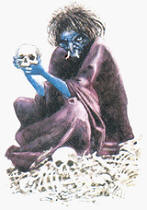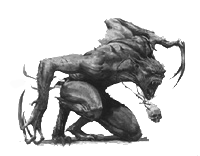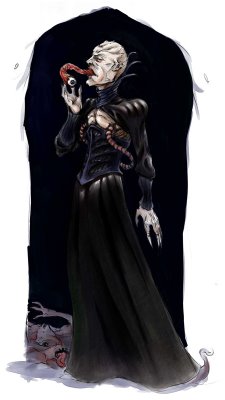Saint Andrew/Sfantul Andrei was the first one to preach Christian beliefs on what is now Romanian territory. When November 30 was fixed as a day to celebrate his life and accomplishments, the saint’s image was combined in the conscience of early Christians with pagan beliefs of the former spiritual rituals, fact shown by the magical acts of Saint Andrew’s Night.  Saint Andrew’s Eve is dedicated to rituals that might seem pagan, meant to protect people, their households and the animals they breed. They were further thought as governed by Saint Andrews so that the protective rituals get a divine aspect. Saint Andrew’s Eve is dedicated to rituals that might seem pagan, meant to protect people, their households and the animals they breed. They were further thought as governed by Saint Andrews so that the protective rituals get a divine aspect.
Saint Andrew’s Eve is thought to be one of the few moments when the barriers between seen and unseen disappear. A night of magic, of specters and of unusual events. Saint Andrew allows good and evil to mix territories during this special night. Specters are thought to walk freely, steeling people’s minds and depriving their crops and livestock of fertility. Romanian peasants use garlic as main defense. The most important action of the night is “Guarding the Garlic”. Girls and boys are supposed to dance and sing while guarding the garlic, to give it the needed qualities to fight the evil. The boys are supposed to try to steal it, while the girls need to stay vigilant and protect it. Thus guarded, the garlic will then protect people, sometimes even changing their fate. During the same night, orchards and crops’ fertility is tested. Cherry tree branches are brought inside and they need to have flowers by Christmas, or grains are planted into small recipients. Both Saint Andrew and Saint Nicholas are perceived as “Old”, the term used in Romanian being “mos”. They symbolize the beginning of winter and wolves packs movements, clear signs of aging and degradation of time. On 29-30 November, The Specters’ Night, chaos is reached, the state prior to Creation. It is a night reigned by fear, as dead spirits and living specters (“strigoii vii”) fight on boundaries, cross-roads and other unholy places. The living specters are souls of real people who leave their bodies during this night. When they wake up the next day, they have no recollection of the fights they took part in. Bloody duels continue until cocks sing at dawn. As specters are known to be violent to people, some precautions are needed: garlic is used as an ointment for the body, for all windows and for all doors. The atmosphere is still tensed on the actual holiday, also Wolf’s day. On this day, wolves are faster and no pray can run free from them. The day is also marked by people transforming into “pricolici”, some sort of ware wolves, people with faces of wolves or dogs.  The wolf is a major symbol of the day. On Saint Andrew’s no one uses a broom and they never throw anything, otherwise wolves will eat their livestock. Also, during Saint Andrew’s Night, all wolves gather together and can talk, but those who hear them risk to be killed. The wolf is a major symbol of the day. On Saint Andrew’s no one uses a broom and they never throw anything, otherwise wolves will eat their livestock. Also, during Saint Andrew’s Night, all wolves gather together and can talk, but those who hear them risk to be killed.
Saint Andrew’s Night is one of the most important times of the year for witches and charms. Girls use the magic of this night to find out the future. One common practice is to put nine cups of water into a bowl and leave it under a holly object. In the morning, they measure the water with the same cup. If they have more water in the bowl, they’ll be lucky, if not, they’ll be unlucky and will not marry. Another practice is to put 41 wheat grains under their pillow. If they dream someone steals their grains, then they will marry. Otherwise the girl will remain single. Young girls can also find out what their husband will look like by the shape heated and then cooled tin takes. Another way is to sit awake in front of a mirror, with a candle on each side, and look into the mirror until the face of the future husband is revealed. All details on the holiday from here, here and here (RO only).
Most practices of Saint Andrew’s celebration are extremely interesting and beautiful. However, they are disregarded and not promoted enough. We tend to forget them and replace them with imported holidays, such as Halloween. Crossposted at Light Within.
|





Indeed! So painfully right. It's the same situation with Valentine's day and Romanians' Dragobetele...
Pity